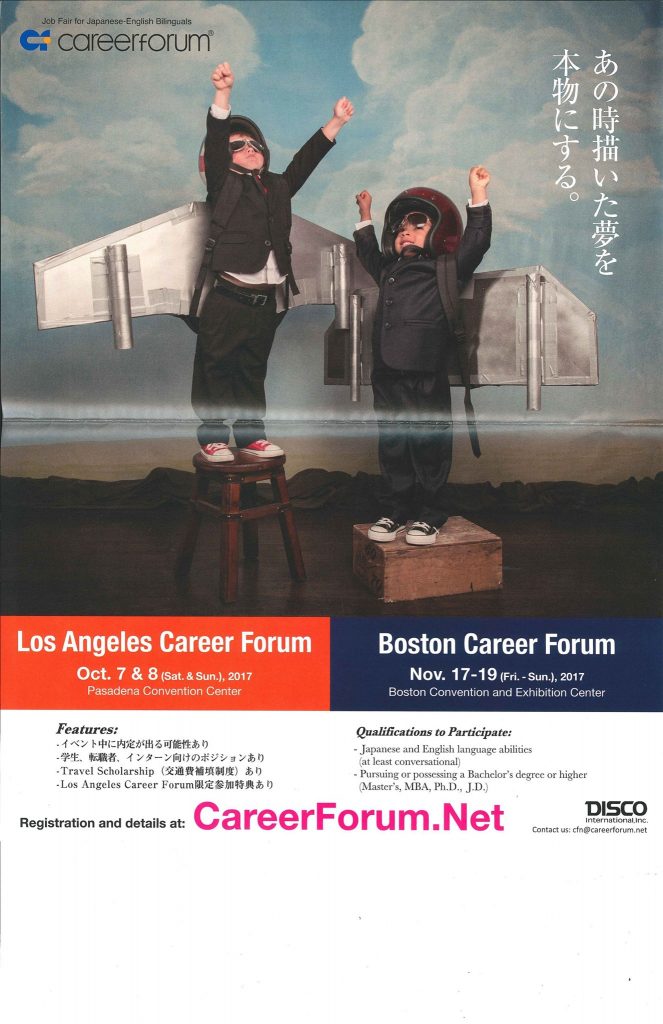Learning English in Japan
Would you like to teach English in Japan?
AEON Corporation is one of the largest English Conversation schools in Japan. AEON offers full-time teaching positions, a good salary, and a lot of support to help newly hired teachers with their move to Japan. For more information about AEON, please feel free to visit their website at www.aeonet.com<http://www.aeonet.com>.
AEON visits Boston a few times a year for interviews and is always interested in hiring SU students. Their next interview session in Boston will be held on May 14, 2018.
If you are interested, contact Uri Levy, Paul Hunt, Caroline Sgrignoli & Ruby Kahane, Personnel Recruiters
AEON Corporation
www.aeonet.com<http://www.aeonet.com/>
535 Fifth Avenue
4th Floor
NYC, NY 10017
Tel (646) 277-7335



